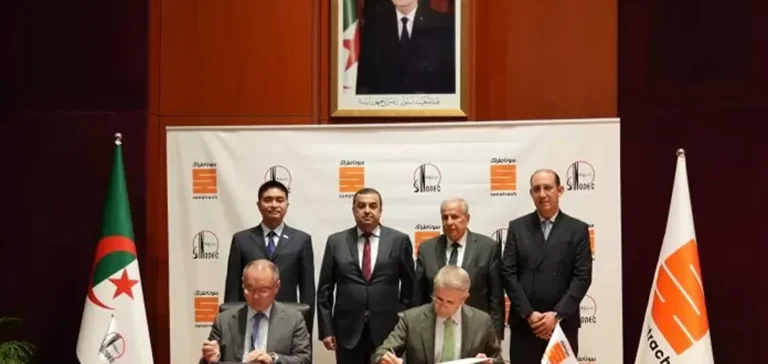The Algerian national hydrocarbon company Sonatrach is stepping up its development initiatives by signing agreements with international groups, aiming to strengthen its presence on the energy market. A memorandum of understanding was concluded with China Petroleum & Chemical Corporation (Sinopec), targeting the exploration and assessment of basins located in southern Algeria, particularly Gourara and Berkine Est, which have until now been considered underexploited.
Gradual deployment in strategic areas
The strategy is based on step-by-step partnerships, limiting Sonatrach’s financial exposure while encouraging the technical contribution of foreign companies already established in the local market. This model was illustrated by the awarding of a contract worth USD855 mn to Jereh Oil & Gas Engineering, a company specialising in the oil sector, for the construction and modernisation of facilities dedicated to the Rhourde Nouss gas field in the Illizi basin. The investments made relate to the extraction, processing and transport of natural gas at this site, which has been identified as underexploited.
Two days before this agreement was signed, Sonatrach had opted for a non-binding memorandum, using a method already implemented during a partnership in April 2025 with Occidental Petroleum at the US-Algeria Energy Forum. This type of agreement enables the company to carry out preliminary studies on the technical potential of the targeted areas, without immediate investment decisions.
Strengthening international cooperation
The progressive approach chosen by Sonatrach makes it possible to anticipate the viability of projects while directly involving its partners in the technical study phase. If the results are deemed satisfactory, these memoranda may develop into binding contracts, as was the case with Sinopec for the Hassi Berkane Nord area earlier this year. This arrangement allows future production capacity increases to be prepared, in a context of increased competition between producing countries, and attracts foreign operators already present in Algeria.
Algerian oil production is closely monitored. According to the Organization of the Petroleum Exporting Countries (OPEC), output stood at around 950,000 barrels per day at the end of June 2025. “These initiatives demonstrate the evolution of contractual methods and the opening of the Algerian oil sector to structured partnerships,” said an industry executive.






















